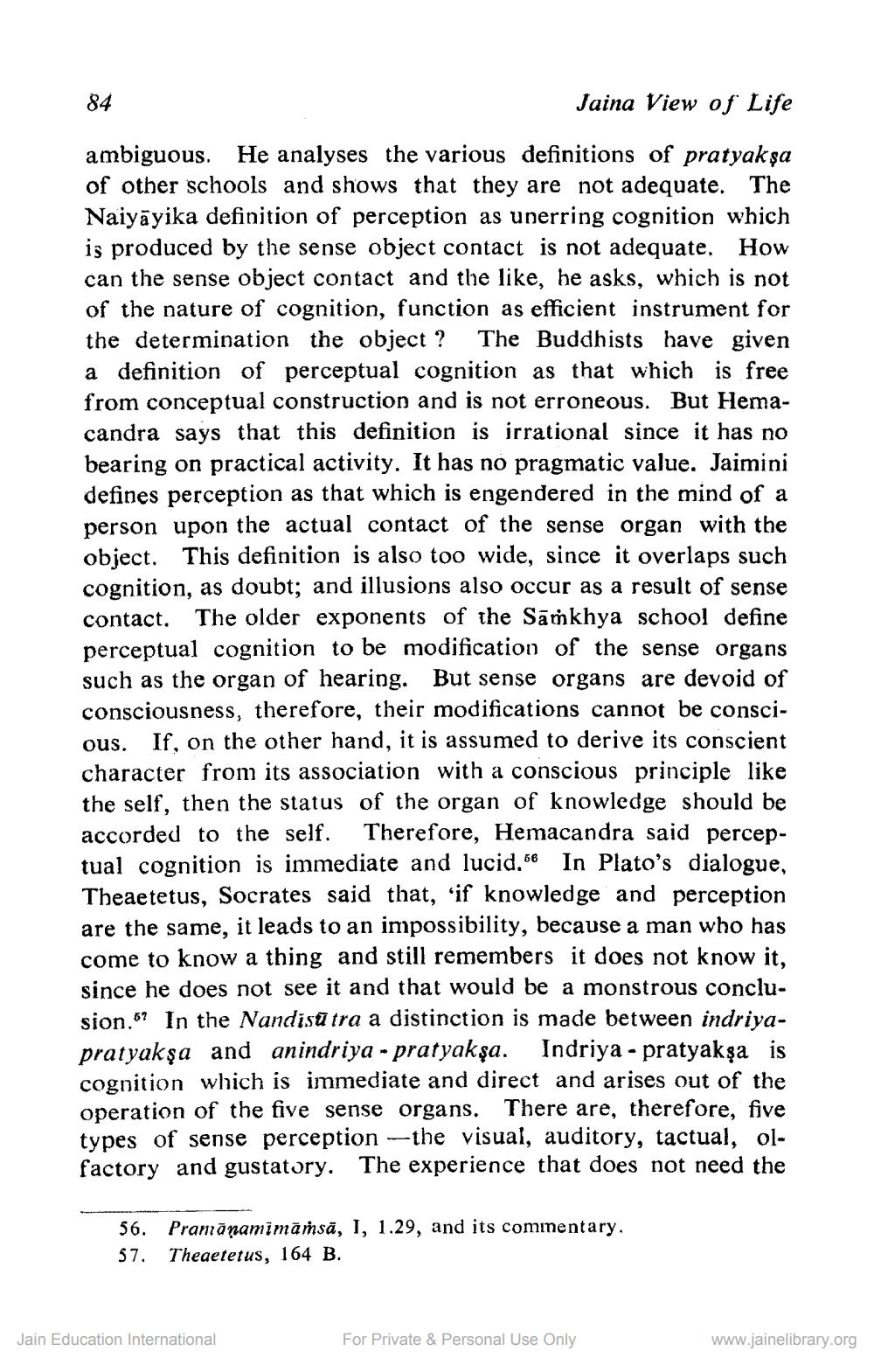________________
Jaina View of Life
ambiguous. He analyses the various definitions of pratyakşa of other schools and shows that they are not adequate. The Naiyayika definition of perception as unerring cognition which is produced by the sense object contact is not adequate. How can the sense object contact and the like, he asks, which is not of the nature of cognition, function as efficient instrument for the determination the object? The Buddhists have given a definition of perceptual cognition as that which is free from conceptual construction and is not erroneous. But Hemacandra says that this definition is irrational since it has no bearing on practical activity. It has no pragmatic value. Jaimini defines perception as that which is engendered in the mind of a person upon the actual contact of the sense organ with the object. This definition is also too wide, since it overlaps such cognition, as doubt; and illusions also occur as a result of sense contact. The older exponents of the Samkhya school define perceptual cognition to be modification of the sense organs such as the organ of hearing. But sense organs are devoid of consciousness, therefore, their modifications cannot be conscious. If, on the other hand, it is assumed to derive its conscient character from its association with a conscious principle like the self, then the status of the organ of knowledge should be accorded to the self. Therefore, Hemacandra said perceptual cognition is immediate and lucid. In Plato's dialogue, Theaetetus, Socrates said that, if knowledge and perception are the same, it leads to an impossibility, because a man who has come to know a thing and still remembers it does not know it, since he does not see it and that would be a monstrous conclusion." In the Nandisūtra a distinction is made between indriyapratyakşa and anindriya - pratyakşa. Indriya - pratyakşa is cognition which is immediate and direct and arises out of the operation of the five sense organs. There are, therefore, five types of sense perception -the visual, auditory, tactual, olfactory and gustatory. The experience that does not need the
84
56
56. Pramāṇamīmāṁsā, I, 1.29, and its commentary.
57. Theaetetus, 164 B.
Jain Education International
For Private & Personal Use Only
www.jainelibrary.org




